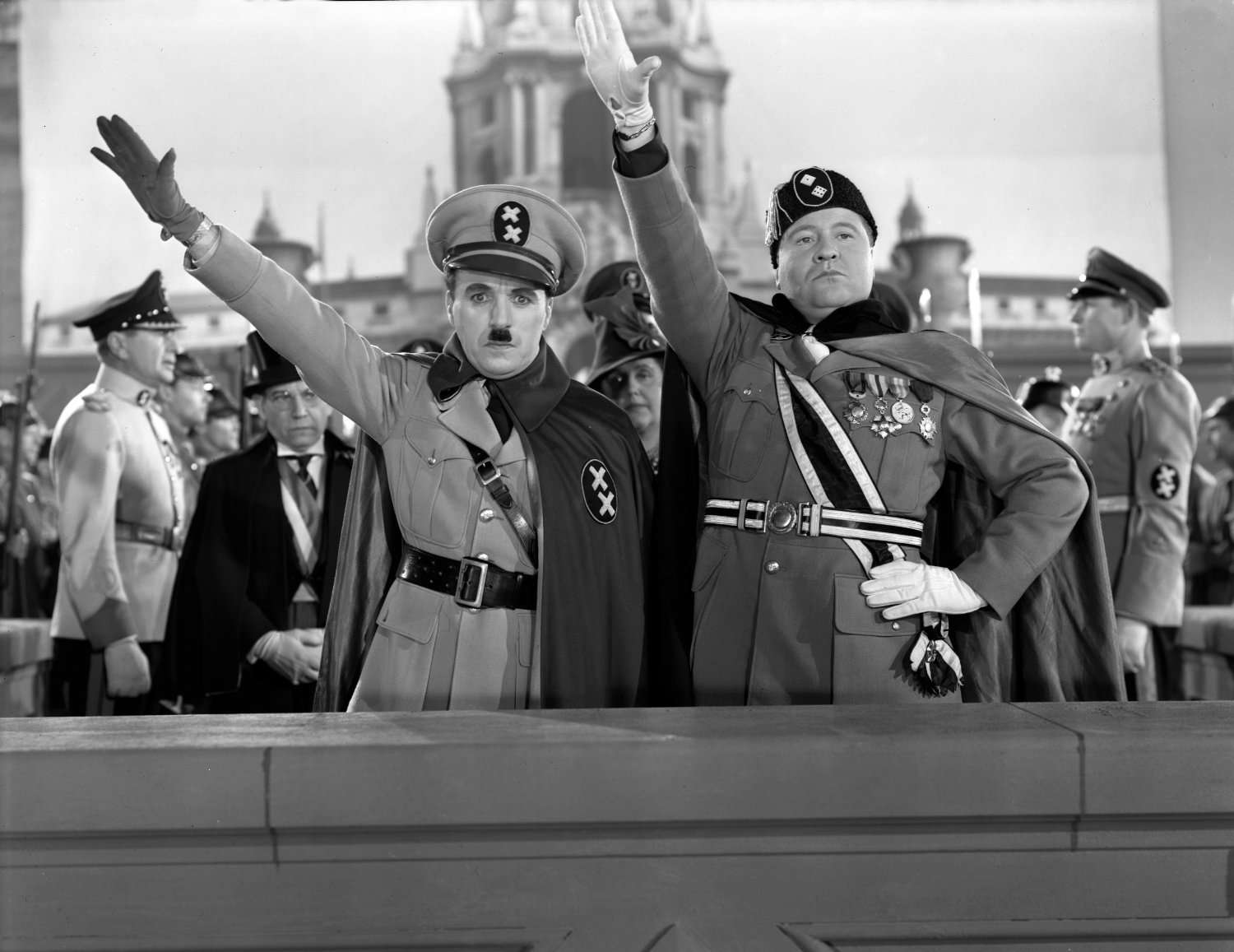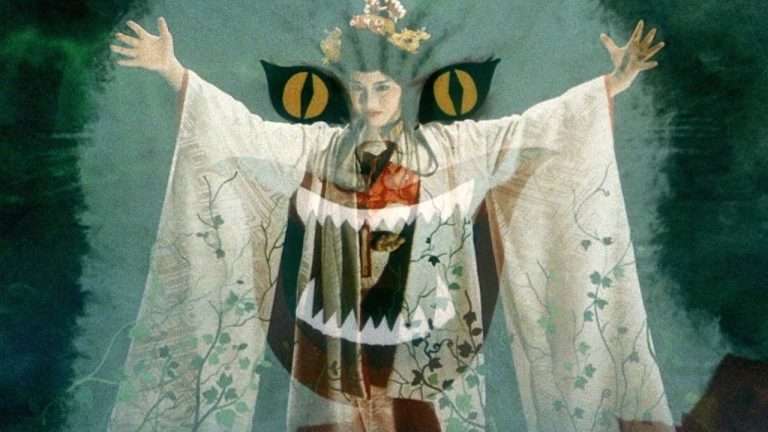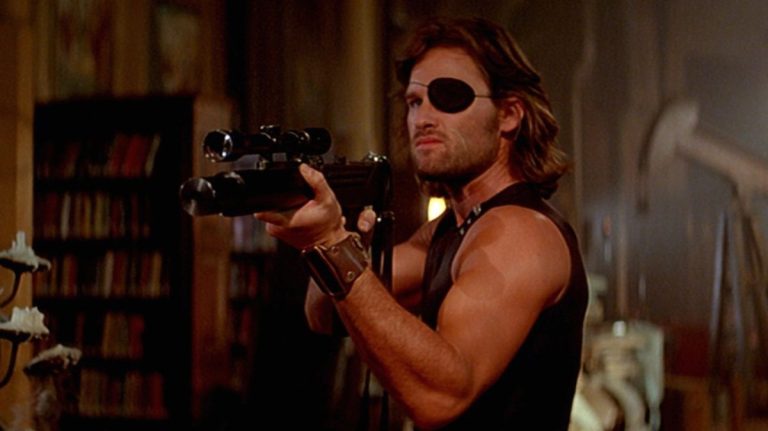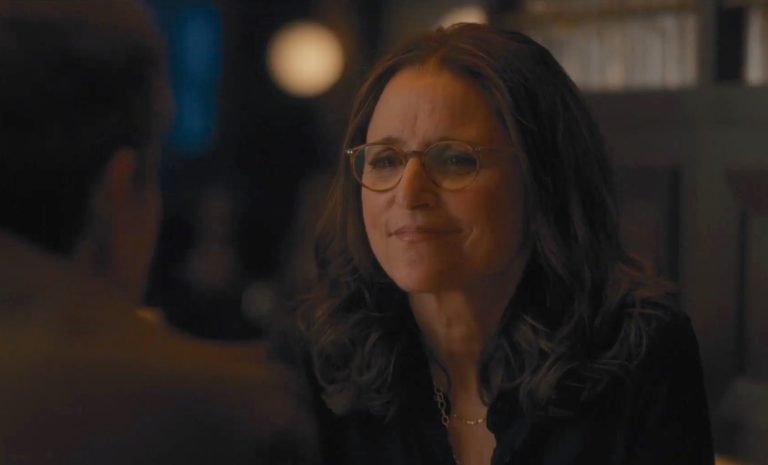Charlie Chaplin’s ‘The Great Dictator’ (1940): As a genre, comedy is often undervalued and seen as something disconnected from the realities of life. However, Charlie Chaplin challenged this perception through his series of uproarious silent film classics. Under the guise of comical gestures, Chaplin’s films consistently display a profound sensitivity to the human condition. His characters, often heralding from humble backgrounds, portray individuals striving to project an air of dignity and sophistication. Set against the backdrop of devastating realities, Chaplin’s films beautifully capture the essence of humanity. Through his masterful direction, captivating performances, innovative choreography, and ground-breaking writing, he skillfully amplifies class consciousness, humanity’s exploitative tendencies, love, compassion, and hope.
Undoubtedly, all of Charlie Chaplin’s films are timeless classics that also remain relevant to their respective time periods. While “Modern Times” (1936) reflects on the dehumanizing effects of the Industrial Revolution, which led to the breakdown of the working class, “The Kid” (1921) involves an impoverished guy demonstrating compassion by taking care of an abandoned child despite his own dire circumstances, emphasizing that the idea of motherhood transcends boundaries of gender. “The Circus” (1928) portrays the unequal power dynamics where the circus producer (Al Ernest Garcia) exploits and oppresses both the tramp (Charlie Chaplin) and his daughter (Merna Kennedy), even though he profits from their performances.
However, “The Great Dictator” (1940) stands apart among Chaplin’s revered oeuvre. It marked his foray into “Talkie” films and was released at a time when America was not yet at war with Germany. In addition to its defiant nature, the film showcases Chaplin’s brilliance in seamlessly blending comedy with the grave subject matter of the rise of fascism and anti-Semitism. It stands as a scathing satire targeting authoritarian dictatorships. It constructs a fictional narrative against the terrifying backdrop of Hitler’s fascism, aiming to preempt the horrors of the Nazi regime.
In a totalitarian world ruled by the deceitful Adenoid Hynkel, a barber suffering from amnesia finds himself fleeing to a neighboring country. Mistaken for the dictator due to their striking resemblances, he eventually delivers a heartfelt speech that advocates for humanity, denounces authoritarianism, and prevents the persecution of the marginalized, offering a message of hope and brotherhood. The film, staying true to the essence of a comedy, sees sudden and unexpected transformations and establishes the triumph of benevolence over fanaticism.
Charlie Chaplin satirizes the political figure of Hitler, depicted as Hynkel, by revealing his true narcissistic nature that runs rampant with his vast mansion. Through his direction, Chaplin portrays the character’s insecurities as he relies on his ministers, Garbitsch (Joseph Goebbels) and Herring (Hermann Göring), to obtain and multiply his power. Herring’s military innovations (a parachute hat, a bulletproof uniform) and repeatedly failing demonstrations in front of Hynkel evoke laughter while also showcasing Hynkel’s extravagant expenditure on military forces in an attempt to devour the world with his inhumane ideas.

Hynkel becomes consumed by his lionized public image, surrounding himself with mirrors in his meeting room and even commissioning sculptures and portraits of himself, further showcasing his deep-seated insecurity. His driving insecurities provoke a craving for autocracy as, in one scene, he lifts a globe-shaped balloon like a toy, taps and kicks it, and rotates it on his finger, accompanied by soft music (Lohengrin Overture by Wagner). This scene offers a hilarious take on his boastful ambitions while also presenting a brief moment of balletic elegance. Ultimately, to Hynkel’s utter surprise, the balloon pops in his face, signaling his impending downfall.
The music too abruptly pauses and is replayed after the Barber’s democracy speech when Tomania is liberated from Hynkel’s childish possessiveness and the holy grail of brotherhood is destroyed. After the globe-balloon scene, Chaplin’s artistry is exemplified in the shaving scene, where the barber shaves his customer, moving his blade in tune with Brahms’ Hungarian Dance No. 5. Accompanying both scenes with music makes them appear equally ludicrous and enhances the cinematic experience.
Chaplin’s subtle direction mocks Hynkel’s manipulation of the media as it projects a facade of humanity. The media captures staged photographs of Hynkel with toddlers while, secretly, he displays disgust as he immediately wipes his hands after handling them. Hynkel even orchestrates a photo opportunity with Napoleon (Jack Oakie), utilizing it only to bolster his grandeur and highlight his meeting with another infamous dictator.
The absurdity of Hynkel’s deep-seated hatred and his use of the media to manipulate the world can only be displayed through Chaplin’s skilled humor. Also, Hynkel’s exaggerated, confused speech and guttural words depict his egomaniacal self, which is only obsessed with retaining his authoritarian power. Hence, despite being a comedy, the humor in the film lends credibility to portraying Hynkel’s tyrannical self.
The destructive nature of fascism takes on an intensely comical tone in “The Great Dictator.” The scene involving the laying of the carpet for Napaloni (a satirical portrayal of Italy’s Benito Mussolini) serves as a mockery of the dictators’ hypocrisy, as their fragile egos demand extravagant displays of reverence. The film humorously portrays the deceptive desire for control and the constant one-upmanship through scenes such as raising the chair’s height, bickering over treaty agreements, and competing between troops.
These comedic moments effectively ridicule the idea of always striving to outdo others, highlighting the absurdity of seeking superiority. Through the meeting of the two dictators, the film implies that dictatorship inherently prevents peaceful coexistence. Furthermore, it conveys the notion that one can only attain power by flaunting superiority over others.
In contrast, the humble barber desires nothing more than to live a peaceful life with his beloved Hannah (Paulette Goddard) and run his shop. The barber’s character carries Chaplin’s sentiments and thoughts against fascism, bigotry, and fanaticism. The barber’s understanding of humanity and his compassionate nature are evident in his words as he articulates a message of universal brotherhood: “I don’t want to rule or conquer anyone.
I would like to help everyone, if possible—Jews, Gentile, black, white.” His words shed light on the root causes of violence and emphasize the path to eradicating them: “We think too much and feel too little. We need humanity more than machinery. We need kindness and gentleness more than cleverness.” Thus, the film highlights the stark difference between one who preaches hate as a fascist and the other who advocates for humanity, thereby embracing the principles of democracy.
Chaplin faced significant hurdles during the production of “The Great Dictator.” However, the film garnered great recognition, earning five Oscar nominations, including Best Picture, Best Actor, and Best Screenplay. Later, the turbulent political climate in America led to his departure from the country in 1952, as he was accused of communist sympathies. In “The Great Dictator,” Chaplin transforms the senselessness and detached nature of comedy into something that deals with as serious a topic as politics, making us wholeheartedly laugh at a dictator’s shenanigans.





![Sissy [2022]: ‘SXSW’ Review – A Luscious And Brutal Horror Comedy Packed With Brilliant Performances](https://79468c92.delivery.rocketcdn.me/wp-content/uploads/2022/03/Sissy-1-768x403.jpg)
